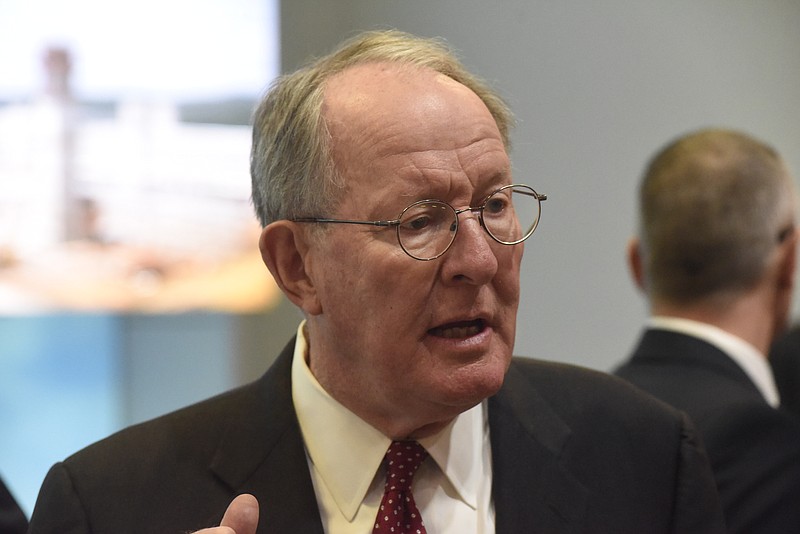The Higher Education Act originally was signed as part of President Lyndon Johnson's Great Society agenda in 1965.
Its intent was "to strengthen the educational resources of our colleges and universities and to provide financial assistance for students in postsecondary and higher education." Fair enough, but not surprisingly, the vagueness of that wording has allowed a constant growth and widening and changing of the act's intent.
For instance, would it surprise you to know that it includes tenets involving encouraging voter registration and illegal file sharing (movie piracy)?
Although the legislation was reauthorized by Congress in 1968, 1972, 1976, 1980, 1986, 1992, 1998 and 2008, it hasn't been reauthorized since as partisan politics have pushed Democrats and Republicans farther apart on the political spectrum. Although the last authorization expired in 2013, the legislation has been extended as Congress attempts to work out a new reauthorization, or at least an update.
That reauthorization, or update, this time around must go through the hands of Sen. Lamar Alexander, R-Tennessee, chairman of the Senate's education committee.
In an era where various types of postsecondary training - though not necessarily a four-year college degree - are obligatory for securing many family wage jobs, the state's senior senator wanted to make sure the update addressed three things: Is college affordable? Is it worth it? And could applying for financial assistance and repaying student loans be simpler?
Before 2019, the Senate education committee held 27 hearing over the previous four years on the Higher Education Act. This year, Alexander has had three hearings. The most recent one earlier this week looked at the accountability of students repaying their loans, making the data the federal government collects from colleges more useful to students and families, and strengthening the accrediting agencies that help certify students are getting a good education.
Instead of sending thousands of federal bureaucrats to evaluate the loans of students at every college and university, creating what the former University of Tennessee president called "a national school board for colleges," Congress, first, should create "a new measure of accountability that looks at whether students are actually paying their loans." It would apply to every program at every college - public, private and for-profit and would include students who took out loans but dropped out before graduating.
Such a measure, Alexander said, might entice schools to lower tuition, help their students stay in school and help them find a job so they can repay their loans.
While many Democrats push more loan forgiveness and even free college, what they never discuss is cost. The more than 1 trillion dollars in unpaid student loans are taxpayer money. Mere fairness requires that students pay back the loans or not take them out in the first place.
Alexander, secondly, wants the data the federal government collects from colleges to be disseminated in a way that is more useful to students and families. Critical to that, he said, are making sure only the data that is needed is reported and then helping direct the U.S. Department of Education to make that information accessible and usable to students.
Thirdly, he wants to strengthen the 44 federally recognized accrediting agencies who certify that students are receiving a good education. Instead of insisting the agencies have a standard of "student achievement, Congress should require the accrediting agencies to measure whether students are both learning and succeeding, leaving the method of measuring to the accrediting agencies and the schools themselves.
In general, Alexander said, he wants to duplicate with higher education what reauthorizing the No Child Left Behind Act with the Every Student Succeeds Act, which he led, did with public schools.
"We want accountability," he said in the education committee hearing. "We want to make sure that a college degree is worth it, but we don't need to create a national school board for colleges with thousands of federal bureaucrats telling [colleges] how to conduct their business."
Alexander, in an address to the American Enterprise Institute in February, forecast a hope the legislation could be reported out of committee this spring so it could be considered by the full Senate this summer. That time schedule, he said, would permit a joint conference with the House of Representatives on its version of Higher Education Act reforms and, he hoped, "a present for 20 million college students and their families by Christmas."
He has in mind the type of present the Every Student Succeeds Act was for former President Barack Obama.
"This is an early Christmas present," the then-president said in December 2015. "After more than 10 years, members of Congress from both parties have come together to revise our national education law. A Christmas miracle."
We hope another Christmas miracle is in the offing.
